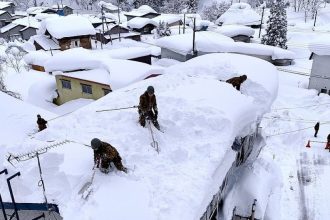The World Bank has expressed grave concern over Pakistan’s economic status, revealing a sharp rise in poverty to 39.4% as of the last fiscal year. This means an additional 12.5 million individuals, bringing the total to about 95 million Pakistanis, live below the poverty line due to deteriorating economic conditions. Tobias Haque, the World Bank’s lead country economist, stressed the country’s urgent need for significant policy shifts, citing serious economic and human development crises.
Revenue Enhancement Proposals
Despite having the potential to collect taxes equivalent to 22% of GDP, Pakistan’s current tax-to-GDP ratio is a mere 10.2%. The World Bank suggests numerous measures to bridge this gap, including:
- Removing tax exemptions, particularly in the power generation, real estate, and agriculture sectors.
- Mandatory CNIC usage for transactions, especially asset-related ones.
- Enhancing excise duties on cigarettes, ensuring consistent rates across brands with annual inflation-adjusted increments.
- Streamlining land and property tax systems, addressing disparities between actual market valuations and different provincial and federal tax rates.
Calls for Expenditure Reduction
To stabilize the economy, the World Bank recommends Pakistan cut wasteful expenditures, suggesting a comprehensive fiscal adjustment surpassing 7% of the economy’s size. Recommendations include:
- Slashing energy and commodity subsidies.
- Implementing a single treasury account to manage government deposits more efficiently.
- Reducing unnecessary federal spending on provincial projects and loss-making entities.
- Addressing inefficiencies within the energy sector, including the high costs borne by households and losses by power distribution companies.
The World Bank emphasizes that while they can provide advice and financial support, the real solutions must originate from within Pakistan. The ultimate goal is to promote inclusive, sustainable, and climate-resilient development.






